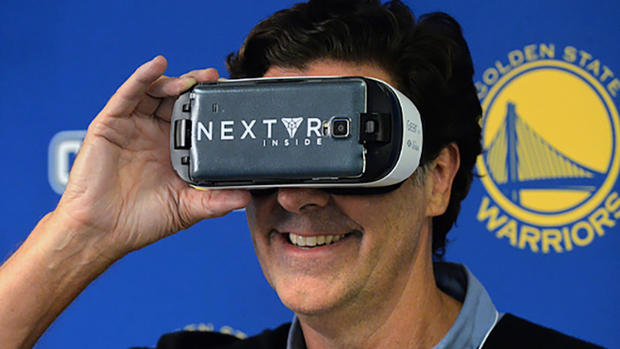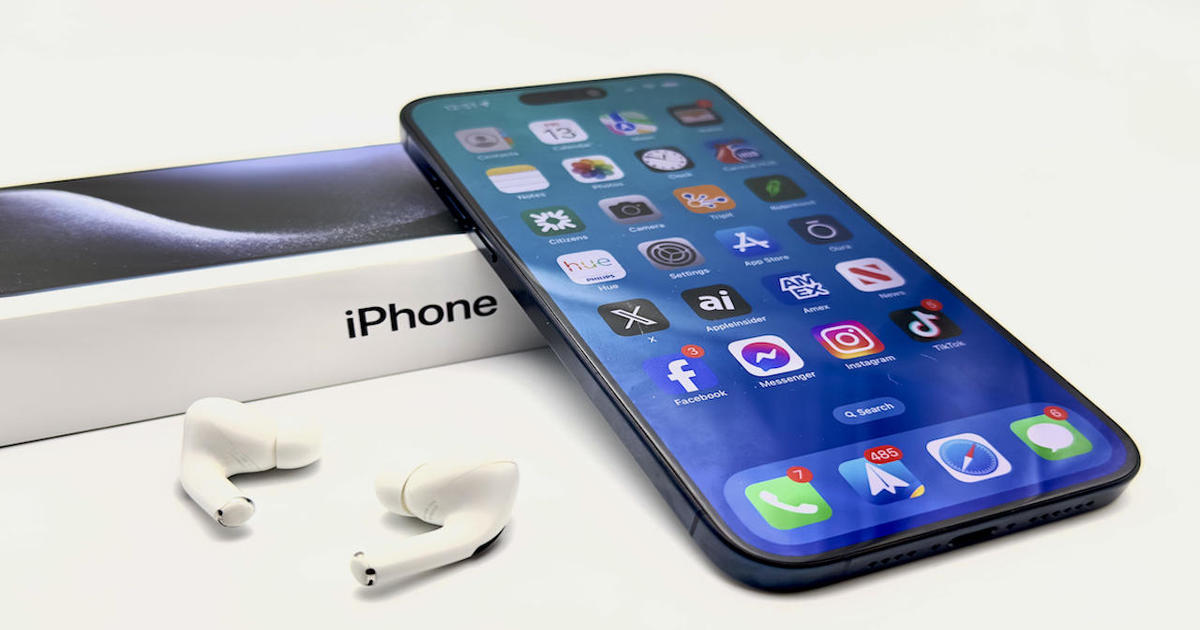Apple Buys NextVR Which Broadcasts Sports, Music In Virtual Reality
SAN FRANCISCO (CBS SF/CNET) -- Virtual reality got a little more real Thursday with news that Apple bought the VR streaming sports company NextVR.
The Newport Beach, California startup is mostly known for partnerships with the NBA and Wimbledon to stream live sports from specialized cameras set up courtside to people's headsets at home. The effect is meant to make people feel as though they're sitting in premium seats, watching the game. NextVR also struck deals to stream music events and some of the debates from the 2016 presidential race.
Next VR, founded in 2009, raised $115.5 million, according to startup tracker Crunchbase. Apple confirmed the news, saying it "buys smaller technology companies from time to time and we generally do not discuss our purpose or plans." The acquisition was earlier reported by 9to5Mac and Bloomberg.
Apple's purchase marks the latest sign the iPhone maker is closer to revealing its augmented reality and virtual reality headset, which sources told CNET in 2018 was planned for sometime this year. The headset is expected to use AR technology, which overlays computer images on the real world, and VR, which tricks your brain into believing you've been transported into a computer program. But more importantly, it could signal Apple's next major product reveal, following the iPhone in 2007, iPad in 2010 and Apple Watch in 2014.
Apple's move into headsets would also put it in deeper competition with Microsoft and Facebook, whose respective HoloLens and Oculus devices are considered among the market leaders.
Microsoft's latest device, 2019's HoloLens 2, is a $3,500 headset with a camera, transparent screen and internet connection through your phone. With those technologies, Microsoft's device can add computer images to whatever you're looking at, allowing companies to highlight tools you need to use while learning to make repairs on an engine, for example, or bring an expert across the world to an oil platform to help a field worker quickly solve a problem.
Facebook's Oculus headsets instead bring a screen so close to your eyes that your brain can be tricked into believing you're in the computer-generated world. This means you can scuba dive with massive blue whales, explore the ruins of Chernobyl or battle your way through an epic spaceship dogfight. Scott Stein, CNET's editor at large, called Facebook's $399 Oculus Quest headset "the best thing I've tried this year" when he reviewed it in 2019.
Where Apple's headset will ultimately fall is still unclear. The VR market is still considered nascent with sales still a fraction of those of smartphones and computers. But, with the coronavirus pandemic forcing millions of people to shelter in their homes, experts say headset makers have an opportunity to offer us escape or even a better way to work.
© CBS Interactive Inc. All Rights Reserved




